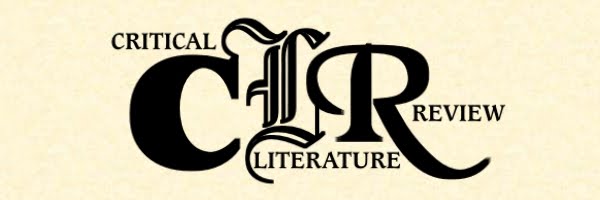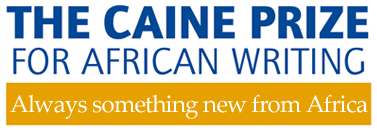- Read the first part of the review HERE
If you are patient enough, you might
like some pieces in this year’s Caine Prize than you thought. Just like how I
couldn’t relate with Absurdism in my drama class, few things in some of these
pieces, especially those I will be focusing on in the last part of this review,
frustrated my reading. The internet does not allow you to easily give the kind
of attention these stories demand. The internet is a jealous thing, you
know. And one with more interesting
stories to offer. In my drama class, for the grade, I took to liking the
Absurdist movement; if only to be able to fault it well and please my lecturer.
In the nonsensicalness of Vladimir and Estragon (in Samuel Beckett’s
Waiting for Godot, an absurdist play
text), I took up an interest, rationalizing everything in to make sense of
everything. In the endless dribbles of Vladimir and Estragon and the bestial servitude
of Lucky to Pozzo, I saw how humanity could be vain and nothing and wicked. And
so with the responsibility that comes with completing this review, I have made some
sense of The Gorilla’s Apprentice and The Intervention and I
have dug up some interesting things in them; if only to be able to review them
well.
These stories usefully make use
of good subtleties. In Billy Kahora’s The Gorilla’s Apprentice for
instance, nothing is directly quickly revealed. Before anything is really
shown, you must have known, so that when it is eventually revealed, it does not
then only become a revelation, but a knowledge that is made known to understand
other things. Instances of this abound in Billy Kahora’s The Gorilla’s Apprentice.
It is in the same use of subtleties, that Billy’s The Gorilla’s Apprentice
and Tendia’s The Intervention share some writing style.
In “The Intervention”,
though politics is a noticeable theme, the writer does not make it dominant. He
only turns it into a passing commentary that complements the squabble between
the young couple of Tamu and Sarah, and the characters’ lives as exiles. With
this, it is only in the sufferings and anxieties of these characters and their
conditions as immigrants that commentaries on the devilish politics running down
their home country are made. Interesting way of writing there.
With “The Gorilla’s Apprentice”
too, the author never pushes it to you that Kenya is in a political turmoil.
After you may have been hooked by Jimmy’s obsession with the old mountain
Gorilla, chips of political uncertainties are only made reflective: in how long
the tourists will stay at the zoo; in the crazy attitude of motorists on the
way to Jimmy’s house; in the screams and billows observed away from the zoo.
All these subtleties make these two pieces somewhat engaging.
“The Gorilla’s Apprentice” by Billy Kahora
Nothing matters to Jimmy Gukonyo,
only the Gorilla does. The zoo is his escape from many miseries. That boy
really has suffered. From a torn home, to the miseries that come with being
raised by a single parent and his sight condition; a young boy cannot have bargained
for so much despair. Nothing bears him comfort than in the non-verbal company
of the gorilla. So, it is understandable that life for the gorilla is also one
for him. As the gorilla ails, Jimmy soon seeks a way to talk to it. Semambo is
his solution; Semambo is the havoc.
Billy takes feminism overboard in
this piece. It does piss me off! We should stop this vogue of making men
unjustifiably cruel in literature. This is the kind of literature that preys on
the common for some misplaced gender right. We are never informed of what
happens to Jimmy’s father, why he leaves Jimmy and his mother. We do not know
what he does or does not do. All the reader knows is that he is the devil and
the cause for the broken home. The author does not tell you this directly
though, but the manner Jimmy’s father is mentioned in the stories makes you
assumes as much. When a man leaves his home and child, he is always the devil
and the women a saint in her singlehood (as she finds life afterwards in all
manner). Just make men the devils anyhow and female characters in our
literature are instant heroines. Rubbish.
“When Jimmy was twelve his father left them, and Jimmy began to come on his own,
except for the year he had been in and out of hospital.” (pg. 1)
Why did he leave? Billy will not
tell you. Billy will again tell you he left:
“Jimmy
knew all about these children – had lived among them, and become one of them
after his father had left and
his mother had taken them to her parents’ in Kerugoya for six months.” (pg.
3)
And then the father will be
called names:
“‘What are rabbits anyway? Your father is a rabbit. Always
up in some hole.’” (pg. 4)
The question for his leaving is
still unanswered:
“ ‘You know, when your father left I thought that
we would just die, but look at us now.’” (pg. 4)
And Jimmy’s mother is made a
heroine:
“She would smear on her lipstick and flounce out of the apartment to meet
a new man friend. (I’ve no time for boys. I need a man. James, will you be my
man? Protect me.)” (pg. 4)
“The Intervention” by Tendai Huchu
This interestingly blends a large
scale political turbulence with a trivial emotional issue. In this story, the
characters are distanced victims of what is happening in their country. This is
one piece that almost articulates the drivel and dribble of the exiled. It
shows the hypocrisy of opinionated immigrants even as they are ensconced
elsewhere away from where it burns. It is easy to wax rhetoric when you are
removed off the heat. For a long time,
exile will always be better than home for third world immigrants. They might
only say otherwise to constantly always remind themselves; that they have
homes, that their exile is not total. But really, the exile is total.
Z will hope the opposition party
wins the election here:
“ ‘Change is coming to Zimbabwe,’ Z said.
‘It’s
been a long time coming,’ said the blazo.
‘As
soon as our victory is confirmed, I’m packing my bags, leaving this goddamn
country and going home,’ Z went on.” (pg. 8)
But when something else happens,
his hypocrisy is magnified:
“The results were out. The Party had won. The Party had won. The Party had
won. The Party had. The Party? I saw a joyful smile mixed in with relief on Z’s
face, because the Party’s win was a victory for him too. He had an asylum claim
pending with the Home Office and if the Opposition had won, he’d have been
screwed. He quickly mastered himself and frowned, now wearing a new look, a
cross between sorrow and anger.” (pg. 8)
Does anyone
understand the dumb poetic outburst of Samba here in the story?:
“The
children of Africa cry
Waa-waa-waa
When
they should be laughing
Ki-ki-ki
Can
you hear them, can you hear them.
Will
you help them, will you help them.
The
land of the fat hippopotamus
The
home of the mighty Zambezi
The
mystical ancestors
The
wide African skies
The
children of Africa cry
Waa-waa-waa”
(pg. 9)
Just what is the significance of that anyway?
And don’t tell me it is a mark of some resignation. There are several other
ways that could be achieved.
This year’s
stories are mixed for me. They all have what you will like them for and
otherwise.
Follow Joseph Omotayo on
Twitter @omotayome


























